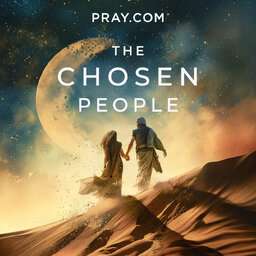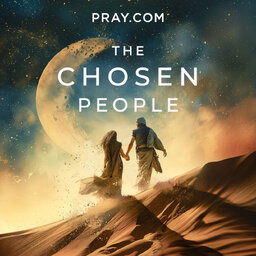Joseph: The Governor
# 60 - Joseph: The Governor - In this episode of The Chosen People with Yael Eckstein, Joseph navigates the complexities of leadership as famine grips Egypt, balancing compassion and strategy to ensure survival. Explore the themes of legacy, divine provision, and the transformative power of faith in this pivotal chapter of God's plan.
Episode 60 of The Chosen People with Yael Eckstein is inspired by the Book of Genesis.
Sign up for The Chosen People devotionals at https://www.thechosenpeople.com/sign-up
For more information about Yael Eckstein and IFCJ visit https://www.ifcj.org/
Today's opening prayer is inspired by Proverbs 13:22, “A good man leaves an inheritance to his children's children, but the sinner's wealth is laid up for the righteous.”
Listen to some of the greatest Bible stories ever told and make prayer a priority in your life by downloading the Pray.com app.
Show Notes:
(02:08) Intro with Yael Eckstein
(03:05) Joseph: The Governor - Cinematic Retelling
(16:04) Reflection with Yael Eckstein
 The Chosen People
The Chosen People


